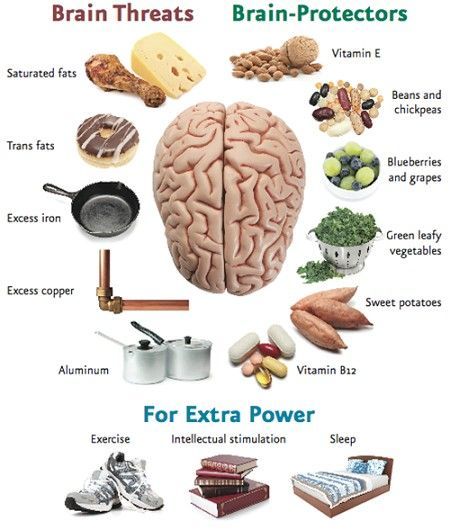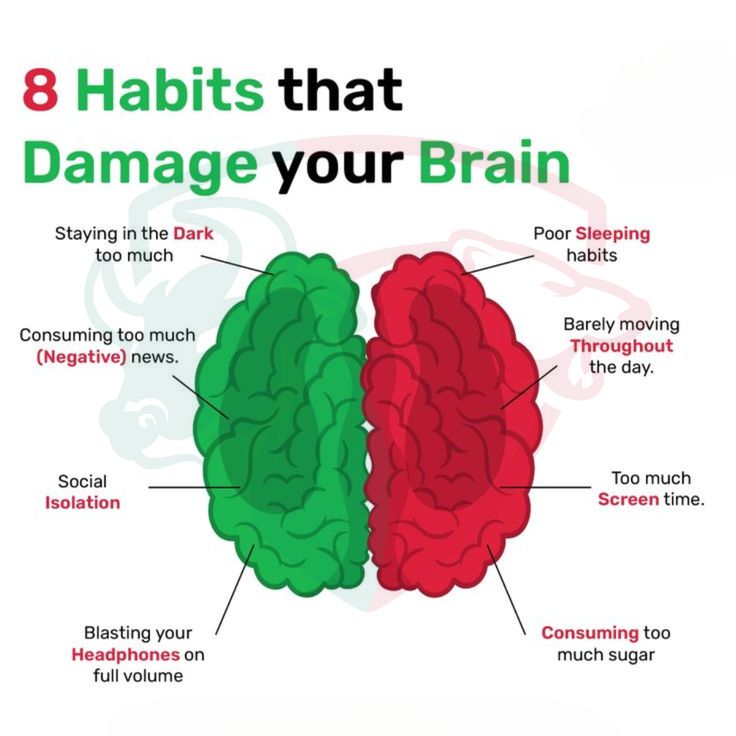
The Gut-Brain Connection
Before diving into the “what” and “how” of eating for mental wellness, it’s crucial to understand why diet plays such a vital role. At the heart of the diet-mental health relationship is the gut-brain axis—a communication network that links your gut and brain through neurons, hormones, and biochemical signals.
Your gut is home to trillions of microorganisms (collectively called the gut microbiome) that help digest food, produce nutrients, and regulate immune responses. These microbes also create neurotransmitters such as serotonin, dopamine, and GABA, all of which are closely tied to mood regulation and emotional health. In fact, about 90% of serotonin—a key hormone that stabilizes mood, sleep, and appetite—is produced in the gut.
An unhealthy diet can disrupt the gut microbiome, leading to inflammation and imbalances in these important neurotransmitters, which may contribute to anxiety, depression, and cognitive decline. Conversely, a balanced diet supports a flourishing gut environment that enhances mental resilience.
Nutrients That Nourish the Mind
Certain nutrients play pivotal roles in mental well-being. Incorporating these into your diet can provide the building blocks your brain needs to function at its best:
1. Omega-3 Fatty Acids
Found in fatty fish (salmon, sardines, mackerel), flaxseeds, and walnuts, omega-3s reduce inflammation, support brain structure, and enhance neurotransmitter activity. Studies show that people who consume more omega-3s are less likely to experience depression.
2. B Vitamins
B vitamins—particularly B6, B9 (folate), and B12—help regulate mood by supporting neurotransmitter production and reducing homocysteine levels, which, when elevated, are linked to depression and cognitive decline. Leafy greens, eggs, legumes, and whole grains are great sources.
3. Magnesium
Magnesium plays a crucial role in brain function and mood. It helps regulate the stress-response system and may protect against anxiety and depression. You can find magnesium in nuts, seeds, legumes, and dark chocolate.
4. Vitamin D
Low levels of vitamin D have been associated with mood disorders, including depression. Sun exposure helps your body synthesize vitamin D, but it’s also present in fortified dairy products, eggs, and oily fish.
5. Antioxidants
Vitamins A, C, and E, along with phytonutrients like flavonoids, combat oxidative stress—a process linked to mental fatigue and neurodegeneration. Fruits, vegetables, and green tea are antioxidant-rich options.

Foods That Boost Mental Wellness
Rather than focusing only on specific nutrients, it’s more practical to build your diet around whole foods that are naturally nutrient-dense. Here are some brain-boosting food groups to prioritize:
1. Fruits and Vegetables
Rich in fiber, antioxidants, and essential vitamins, fruits and vegetables support gut health and protect the brain from inflammation. Aim for a rainbow of colors to ensure diverse nutrient intake.
2. Whole Grains
Whole grains like oats, quinoa, brown rice, and barley provide steady energy through complex carbohydrates, helping to regulate blood sugar and stabilize mood.
3. Fermented Foods
Yogurt, kefir, kimchi, sauerkraut, and kombucha contain probiotics—beneficial bacteria that support a healthy gut microbiome and may reduce symptoms of anxiety and depression.
4. Lean Proteins
Protein provides amino acids, the building blocks for neurotransmitters like serotonin and dopamine. Include sources such as eggs, poultry, legumes, tofu, and fish.
5. Healthy Fats
Avocados, nuts, seeds, olive oil, and fatty fish provide essential fats that support brain structure and communication between neurons.
Foods That Harm Mental Health
Just as some foods nourish the mind, others can hinder mental wellness. It’s wise to limit the following:
1. Refined Sugar
High sugar intake causes spikes and crashes in blood glucose, leading to mood swings, irritability, and fatigue. It also fuels inflammation and negatively impacts the gut microbiome.
2. Processed Foods
Fast food, packaged snacks, and processed meats are high in unhealthy fats, sodium, and preservatives. These can contribute to systemic inflammation and may worsen symptoms of depression and anxiety.
3. Excess Caffeine
While moderate caffeine can enhance alertness, excessive intake may trigger anxiety, disrupt sleep, and increase cortisol levels—the body’s primary stress hormone.
4. Alcohol
Alcohol is a depressant that can impair brain function, disrupt sleep, and alter neurotransmitter levels, increasing the risk of depression and anxiety over time.
Practical Strategies to Improve Your Diet for Mental Wellness
Improving your diet doesn’t mean a complete overhaul overnight. Sustainable change is about gradual, intentional steps. Here are strategies to help you transition to a mindset-friendly diet:
1. Start with One Change at a Time
Don’t try to change everything all at once. Begin by incorporating one extra serving of vegetables per day or switching from white bread to whole grain. Small, consistent changes yield long-term benefits.
2. Plan Balanced Meals
Each meal should ideally include:
- A source of protein (e.g., legumes, eggs, lean meat)
- A complex carbohydrate (e.g., quinoa, brown rice)
- A healthy fat (e.g., avocado, olive oil)
- Colorful fruits or vegetables
This balance helps maintain stable blood sugar and sustained energy levels.
3. Practice Mindful Eating
Mindful eating involves paying full attention to your food—its taste, texture, and how it makes you feel. Avoid eating on autopilot or while distracted. Mindful eating encourages better digestion and can improve your relationship with food.
4. Stay Hydrated
Dehydration can affect concentration, memory, and mood. Aim for at least 6–8 glasses of water daily, more if you’re active or in a hot climate.
5. Prepare Meals at Home
Home-cooked meals give you control over ingredients and portion sizes. Try meal-prepping on weekends to avoid unhealthy convenience foods during busy weekdays.
6. Limit Emotional Eating
Stress, boredom, or sadness often trigger emotional eating, especially cravings for high-sugar or high-fat foods. Keep a food-mood journal to identify triggers and explore healthier coping mechanisms like journaling, walking, or calling a friend.
Sample One-Day Mindset-Friendly Meal Plan
Here’s a simple meal plan that supports both physical and mental well-being:
Breakfast
- Greek yogurt with fresh berries, chia seeds, and a drizzle of honey
- Green tea or black coffee (limit sugar)
Mid-Morning Snack
- Handful of walnuts and a piece of dark chocolate (70% cocoa or higher)
Lunch
- Grilled chicken or chickpea salad with mixed greens, cherry tomatoes, avocado, quinoa, and olive oil vinaigrette
- Sparkling water with lemon
Afternoon Snack
- Carrot and cucumber sticks with hummus
Dinner
- Baked salmon with roasted sweet potatoes and steamed broccoli
- Chamomile tea for relaxation
The Mindset Benefits of a Healthy Diet
When you begin to nourish your body with the right foods, the mental and emotional benefits can be significant. A healthy diet can help:
- Stabilize mood and reduce symptoms of depression and anxiety
- Enhance focus, concentration, and cognitive function
- Support better sleep, which is vital for emotional regulation
- Increase energy, leading to more motivation and engagement
- Promote long-term brain health, reducing the risk of cognitive decline
Final Thoughts
Managing your diet for a healthy mindset is not about perfection—it’s about creating a lifestyle that supports your mental and emotional well-being. Food is one of the most powerful and accessible tools we have to influence how we think, feel, and live. By making intentional, nourishing choices, you give your mind the fuel it needs to thrive.

Hey there!
Welcome to Moviezhive.com, where blockbuster entertainment is just a click away!
Stream a vast collection of Bollywood, Hollywood, and international movies for free—no subscriptions, no hassles.
What Makes Us Special?
✔️ Thousands of movies across all genres
✔️ Zero pop-up ads for seamless viewing
✔️ Advanced zero-buffering tech for smooth playback
✔️ Fresh titles added regularly
Can’t find a movie? Request it, and we’ll upload it fast!
Watch anytime, anywhere. Visit https://moviezhive.com now and start your movie adventure!
Enjoy the Show,
The Moviezhive Team
Приобретая хрумер базы, важно учитывать их актуальность и релевантность вашему проекту.